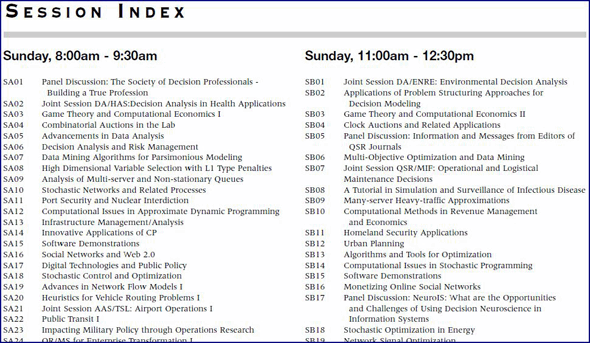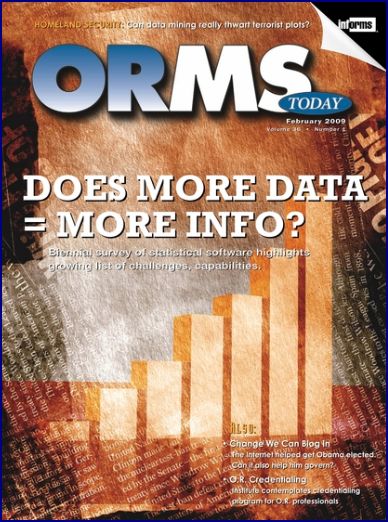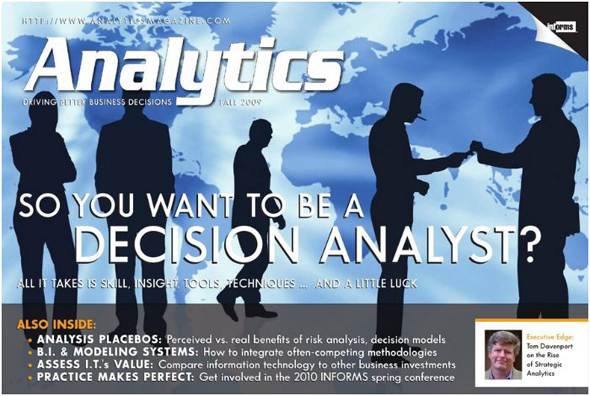Informs
by Andrew Boyd
Today, strange bedfellows. The University of Houston's College of Engineering presents this series about the machines that make our civilization run, and the people whose ingenuity created them.
Professional societies are vital to the advancement of knowledge. They provide a forum for like-minded individuals to observe and critique the work of their peers. This takes place in journals and at conferences.

Economists meet at conferences to talk about economics. Chemical engineers to talk about, well, chemical engineering. But there's one conference that talks about pretty much everything. Radiation therapy. Airlines. Golf. Garbage trucks. Terrorism. At a recent conference in San Diego, as many as seventy-four different presentations were taking place simultaneously — the majority by people from universities, but followed closely by people from government and industry. And what's most amazing is that they meet together because, in a surprising way, they all do the same thing.
The professional society is INFORMS. It's an acronym for the Institute for Operations Research and the Management Sciences. What the members share is a common training in mathematics. Not abstruse mathematics — though there's some of that — but the mathematics of problem solving; of analytics.

Optimization. Random processes. Statistics. These are the tools of the trade. And they don't change — whether discovering faster ways to assemble cars or better ways to schedule football games. Certainly, assembly experts congregate with assembly experts, and schedulers with schedulers. But once a year they all gather at a movable mecca — the faithful paying homage to their common roots.
The annual INFORMS conference typically hosts some twelve-hundred presentations over a period of four days. Some of the titles? "An Analysis of Fund Raising Strategies for Disaster Relief." "Salesperson Compensation in a Supply Chain." Both very different problems, but underneath, a common mathematics.
And it's a mathematics we'll be seeing more and more of. Computers have been gathering data for decades. Now the big push is to turn that data into information; to turn numbers into action. Netflix had all sorts of numbers about what movies their customers rented. They wanted to use those numbers to make better rental recommendations. And in a highly publicized competition, they paid a million dollars for that information. But that's just the tip of the iceberg. Better information from data is the holy grail of organizations throughout the world. Analytics is certainly one of the great career opportunities for the coming decades.
I enjoy my annual pilgrimage to the INFORMS conference. It always reminds me what a breadth of marvelous things we can do with numbers — and a little ingenuity.
I'm Andy Boyd at the University of Houston, where we're interested in the way inventive minds work.
For related episodes, see OPTIMIZATION and OPERATIONS RESEARCH.
For more information on INFORMS and careers in analytics, see the institute's web page, http://www.informs.org.
All pictures courtesy of INFORMS.
